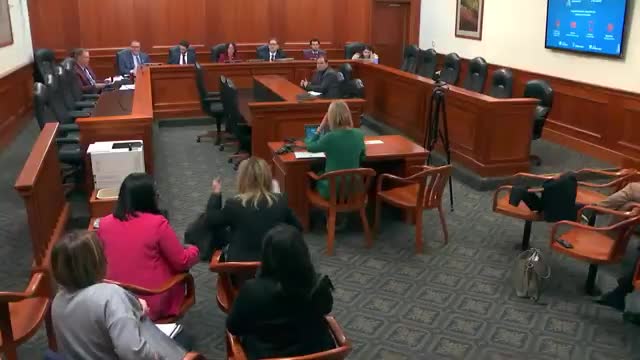Michigan Chamber urges state action on childcare, housing and transit to ease employer labor shortages
Get AI-powered insights, summaries, and transcripts
Subscribe
Summary
The Michigan Chamber of Commerce told the House Appropriations subcommittee that employers continue to cite childcare, workforce-attainable housing and transportation as the major barriers to filling jobs, and recommended scaling successful state tools like the Going Pro Talent Fund and refining TriShare childcare hubs.
Lansing — The Michigan Chamber of Commerce told the House Appropriations Subcommittee on Labor and Economic Opportunity on March 19 that state workforce programs must be paired with efforts to reduce barriers that prevent people from taking jobs, including affordable childcare, workforce-attainable housing and reliable transportation.
Wendy Block, senior vice president for business advocacy at the Michigan Chamber, told members the chamber represents about 5,000 employers statewide and that workforce issues remain the top concern. “We can't — we're struggling to find workers to fill the jobs that we have available,” Block said, citing Michigan’s aging population, flat labor force participation and a mismatch between employer skill needs and the available applicant pool.
Block summarized research the chamber has used in advocacy: Michigan’s labor force participation rate is about 62%, she said, and the state ranks 32nd in the nation on that metric. She told the committee that childcare challenges cost the Michigan economy and employers billions annually, citing a 2023 study with the U.S. Chamber and the Grand Rapids Chamber that estimated a multibillion-dollar economic loss from childcare-related workforce disruptions.
Block praised the Going Pro Talent Fund as the state’s most effective tool for employer-driven training, noting the fund has issued thousands of awards since 2014 and that the average award is about $36,000. She said Going Pro has helped tens of thousands of workers and that demand still outpaces available dollars; she urged the committee to evaluate whether additional appropriations are warranted.
On childcare, Block discussed TriShare, a three‑party cost‑sharing pilot where employers, employees and the state each cover approximately a third of childcare costs through local hubs. She called TriShare a promising model but said it needs refinement and greater employer engagement to scale. She said the program’s eligibility rules and scalability limit participation and recommended exploring sliding‑scale approaches and other incentives to increase employer sign‑ups.
Block also called for zoning and permitting reform to expand workforce‑attainable housing and recommended stronger public‑private cooperation to expand transit options across jurisdictional lines. She urged the committee to demand clearer, public ROI data for state workforce investments and to support incentives that encourage employers to band together on childcare and training solutions.
Committee members asked Block follow‑up questions about the TriShare design, eligibility thresholds and scalability and asked for specific reform proposals; Block offered to follow up with written recommendations.
